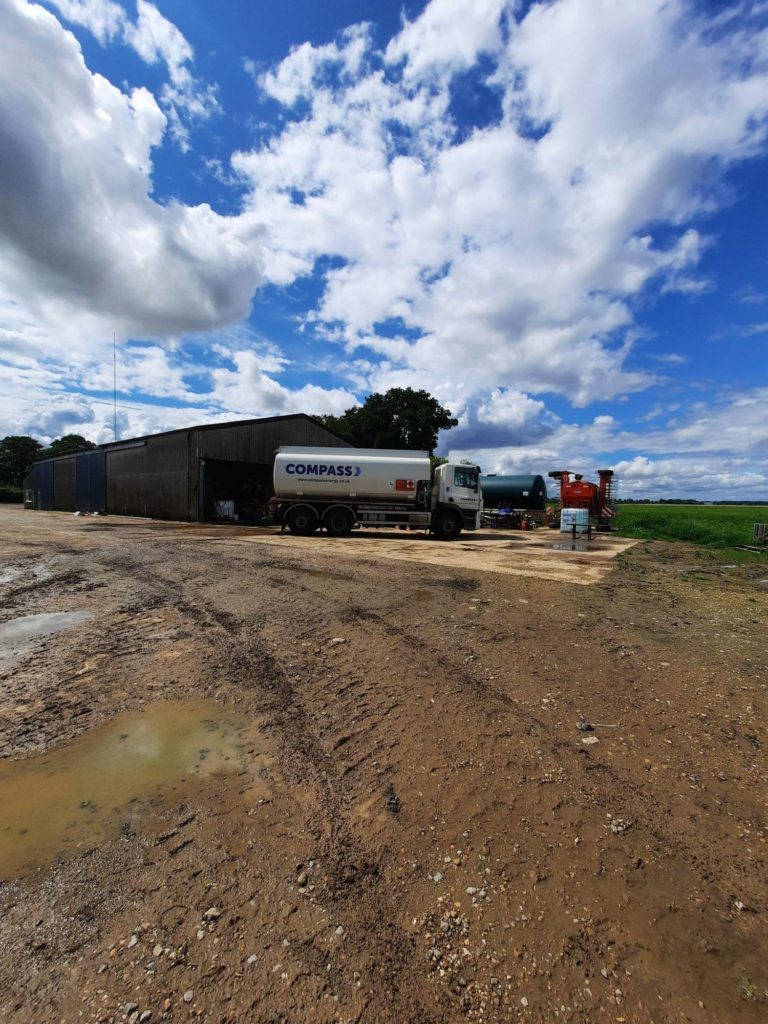Sustainable Practices in Agricultural Fuel Consumption
Even in the modern era, the agricultural sector is considered the backbone of a nation when it comes to food security. However, with the latest technology and the increasing global food demands comes the challenge to meet the demands while reducing their environmental impact.
One of the concerning aspects of this challenge is fuel consumption, as agriculture relies heavily on energy-intensive machinery and practices. Sustainable practices in agricultural fuel consumption are no longer a luxury, but a necessity. It is important to do so to reduce the agricultural sector’s carbon footprint and minimise any kind of damage to the environment.
In this blog, explore various sustainable practices in agricultural fuel consumption, and get to know about the importance of efficiency, innovation, and collaboration.
Before we go through the sustainable practices in agricultural fuel consumption, let’s understand the challenges faced in the process.

The Challenge: Fossil Fuels and the Agricultural Sector
Machinery such as tractors, harvesters, and other agricultural machinery are the base of modern farming, which helps farmers throughout the process of cultivating vast areas of land, plant and harvest crops and transport the produce to the market. However, it takes diesel and petrol, which are fossil fuels, to get these machines to function.
The combustion of these fuels releases harmful greenhouse gases, including carbon dioxide, which is a major contributor to climate change, which can disrupt weather patterns, leading to extreme weather events such as floods, heatwaves, drought and much more. These events can devastate agricultural production, impacting crop yields and food security.
Apart from this, relying on fossil fuels for machines to function can be quite heavy on the farmers’ pockets. The price of oil can fluctuate significantly due to a variety of factors, including geopolitical instability, global supply and demand dynamics, and economic conditions. These price fluctuations can create significant uncertainty for farmers when it comes to budgeting for fuel costs, impacting their profitability and overall financial resilience.
Sustainable Practices: A Multifaceted Approach

There is a range of sustainable practices in agricultural fuel consumption that can be implemented to create a more environmentally friendly and economically resilient agricultural sector. Some of these practices are as follows:
- Precision Agriculture
Precision agriculture techniques include GPS-guided tractors and variable rate technology, which allows farmers to optimise the usage of fuel in many ways. GPS guidance systems ensure tractors follow the most efficient path across fields, eliminating unnecessary turns and wasted travel.
Variable rate technology helps farmers to tailor fertiliser and pesticide application based on the specific needs of different zones within a field. This helps in eliminating wasteful application in areas that don’t require much input and reduces the amount of product that needs to be transported and applied, resulting in fuel savings.
- Soil Health Management
It is necessary to have healthy soil so that the crop yields are good and there is less need for additional inputs that require transportation and application. It also enhances the soil’s ability to retain moisture and reduces the number of irrigation passes required, further lowering fuel consumption.
You can get healthy soil through various practices such as cover cropping, applying compost, and reduced tillage, which are as follows:
- Cover Cropping: This sustainable practice in agriculture includes planting additional crops between main cash crops during fallow periods. These cover crops help suppress weeds, prevent soil erosion, and fix nitrogen from the atmosphere into the soil, reducing the need for synthetic fertilisers.
- Reduced Tillage: This reduces soil disturbance, encouraging healthy microbial communities and improving the soil structure. It helps in improving water infiltration and reduces the need for irrigation.
- Composting Food Scraps: Composting food scraps and yard waste creates a nutrient-rich amendment that can be applied to soil to improve its fertility and organic matter content.
By implementing these sustainable practices, farmers can create a healthy and resilient soil ecosystem that requires less external inputs, leading to a significant reduction in fuel consumption for machines to function.
- Opting for Renewable Energy Sources
One of the best and most effective sustainable practices in agricultural fuel consumption is shifting to renewable energy sources. These sources are as follows:
- Biofuels: Biofuels, such as biodiesel and ethanol, can be produced from crops like corn, soybeans, and sugarcane. They are a good renewable alternative to traditional fossil fuels and can significantly reduce greenhouse gas emissions.
- Solar Energy: Solar panels can help to power irrigation systems, electric fences, and other equipment. Solar energy is abundant, renewable, and reduces reliance on diesel generators.
- Wind Energy: Wind turbines can generate electricity for farm operations, reducing dependence on grid electricity and fossil fuels.
- Agroforestry and Crop Rotation
More sustainable practices in agricultural fuel consumption are agroforestry and crop rotation. These are as follows:
- Agroforestry: Trees act as carbon sinks, offsetting emissions from fuel consumption. Incorporating trees and shrubs into agricultural landscapes can enhance biodiversity, improve soil health, and provide additional sources of income.
- Crop Rotation: Rotating crops considerably improves soil fertility and reduces the need for synthetic fertilisers, which are energy-intensive to produce. Healthier soils lead to better crop yields and more efficient use of machinery.
- Policy Support and Collaborative Efforts
Collaboration and policy support are important for promoting sustainable practices in agricultural fuel consumption:
- Farmer Cooperatives: Cooperative models help farmers to share resources and machinery. This considerably reduces individual fuel consumption and operational costs.
- Government Incentives: Government policies that provide financial incentives for adopting renewable energy and fuel-efficient technologies can accelerate the transition to sustainable practices.
- Research and Development: Continuous investment in research and development is important for developing new technologies and practices that enhance fuel efficiency and sustainability in agriculture.
Sustainable Practices: A Win-Win for Nature and Farmers

Apart from proving to be beneficial for the environment, the mentioned sustainable practices in agricultural fuel consumption are beneficial for farmers as well! Here are some advantages:
- Reduced Costs: Lower fuel consumption means lower operating costs for farmers. This practice can improve their profitability and financial resilience, especially during the increasing fuel prices.
- Improved Efficiency: Sustainable practices in agricultural fuel consumption often lead to increased operational efficiency. Optimising fuel usage, reducing unnecessary travel, and investing in better soil health can all lead to increased productivity and output.
- Enhanced Market Access: Consumers are increasingly demanding sustainable practices from the food they purchase. By adopting these sustainable practices in agricultural fuel consumption, farmers can stand out of the crowd in the marketplace and demand premium prices for their produce.
- Future-Proofing the Farm: Fossil fuels such as diesel and petrol are limited, and their prices will continue to fluctuate. By embracing sustainable practices now, farmers can future-proof their businesses and ensure long-term viability in an evolving world.
Conclusion
Machinery has been an integral part of agricultural practices for a long time now. However, it cannot be denied that the fuel used to get them working impacts the environment. Sustainable practices in agricultural fuel consumption are important for reducing the environmental footprint of the agricultural sector and ensuring long-term viability.
By optimising the use of machinery, adopting renewable energy sources, enhancing fuel efficiency, implementing agroforestry and crop rotation and more, farmers can significantly reduce their reliance on fossil fuels and save considerably more on fuel and expenses. Many consumers across the globe are demanding sustainably grown produce. This can be a win-win for the farmers, as they can outshine in the market by coming up with sustainably grown crop and can demand better prices for their produce.
Collaborative efforts and policy support further promote these practices, enabling a holistic approach to sustainability. Witnessing the impact of fossil fuel such as diesel and petrol on the environment, it is important to continue exploring and adopting innovative solutions that promote sustainable practices in agricultural fuel consumption.
This can be possible with the combined efforts of farmers, researchers, policymakers, and industry stakeholders that will drive the transition towards a more sustainable and resilient agricultural sector, ensuring that we can meet the needs of the present without compromising the ability of future generations to meet their own needs.







